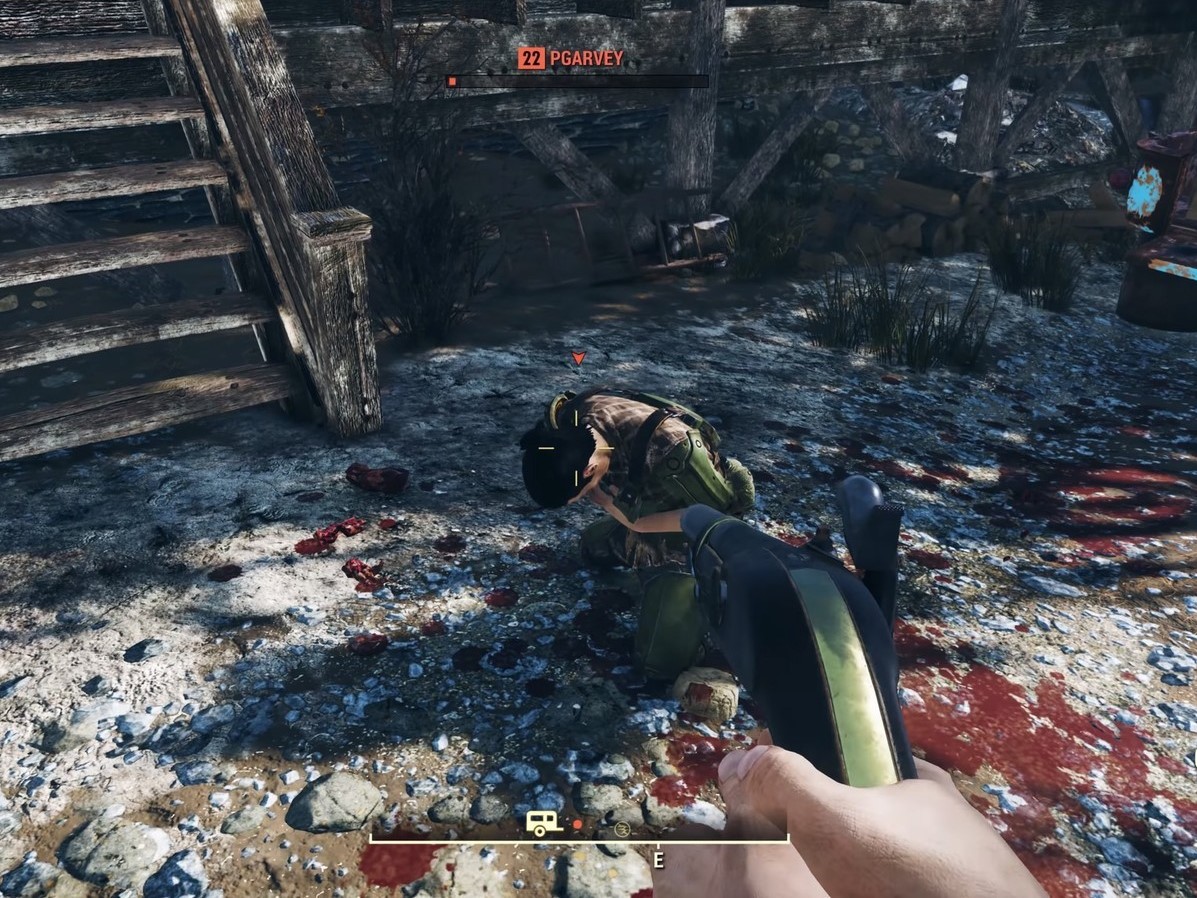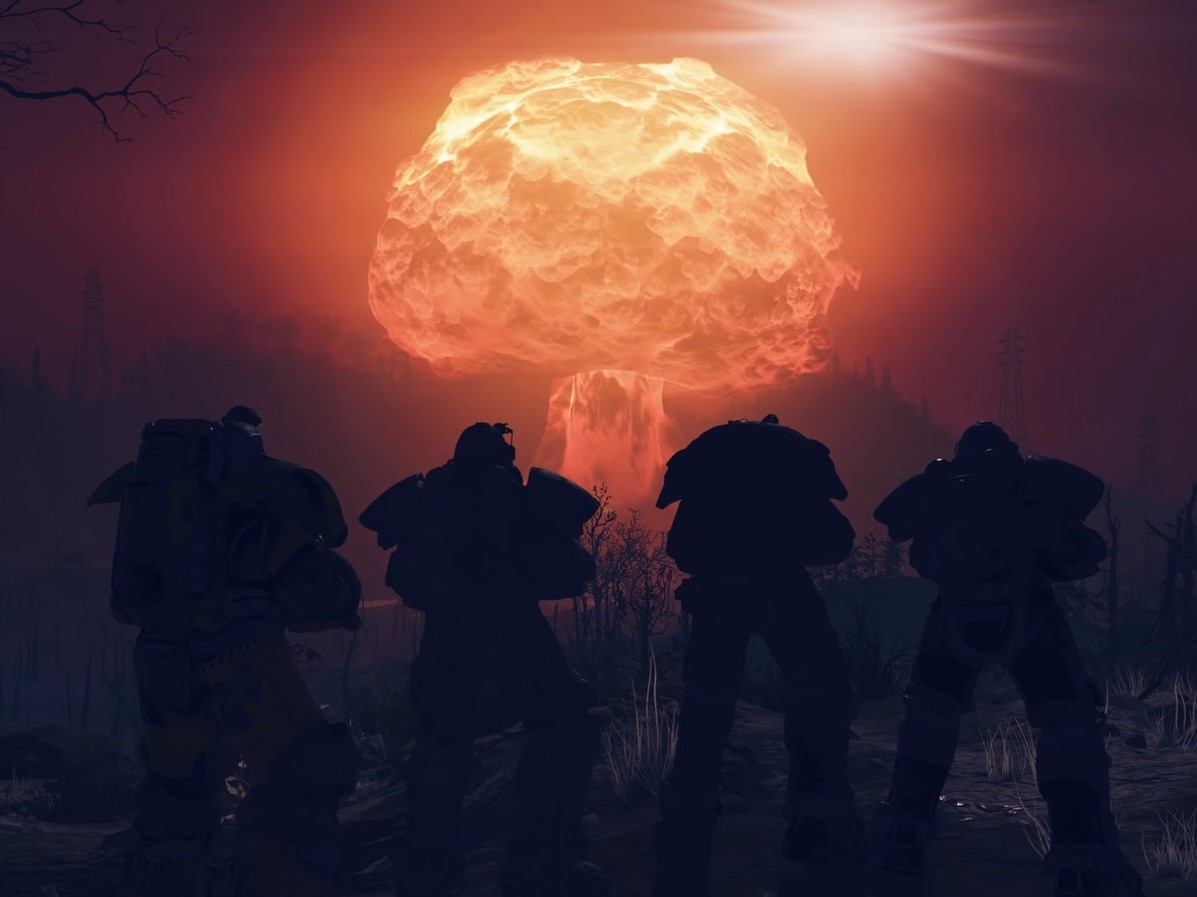In a surreal, post-apocalyptic world where anything goes, players of “Fallout 76,” Bethesda’s prequel to the “Fallout” franchise and the first in the series to be entirely reliant upon online gameplay, often take to the wasteland with chaotic anarchy.
As the game completely depends on interacting with others in an online server of sometimes 20+ other players, and because the name of the game is surviving the treacherous environment of a long-since-dead West Virginia, gamers appear to have two main options: band together to fight off the monstrous creatures of the wasteland, or ransack each other with reckless abandon to get as much loot as possible. You can probably guess which one entices many players.
Along with the fundamentally player-versus-player gameplay of “Fallout 76” comes the game’s proximity chat function. If you’re not familiar with proximity chat, the concept is pretty simple: All players are automatically placed in an in-game voice chat, but they can only hear each other if their characters are in close enough proximity to each other, making for a wide array of realistic communication challenges and advantages.
As you can probably imagine though, the function often turns into an outlet for expressing aggression towards other players, maybe shooting a few ill-willed remarks at someone who just looted you for all your worth as he goes on his merry way through the radioactive woodlands.
Over a week ago, a group of players took it way too far, harassing a player by the name of AJ with homophobic slurs and otherwise hateful language that prompted him to record the harassment. Noticing there was no way to report other players in game, AJ decided to post the clip (strong language warning) on Twitter, tagging Bethesda and asking for a method to report offensive behavior. As a result, the video went somewhat viral, circulating across many different platforms and attracting gamers and social justice advocates alike to criticize the flagrant harassment and show support for AJ and his friend he was playing with.
During an interview with Eurogamer, he described the incident in further detail, and how the harassment began. AJ explained how a player named NathanTheHicc approached him and asked for an item that cures all in game diseases, and during the transaction, one of AJ’s friends said something about his character’s outfit looking “cute.” The response they received from NathanTheHicc was a blunt “I don’t f— with that homo shit.” After that, he returned with his own group and started insulting AJ, which is what is documented in the video.
Upon seeing the video, Bethesda promptly issued a three-day suspension for NathanTheHicc, who seemed to be the one initiating the harassment. After more investigation, Bethesda placed a permanent ban on the entire group of players attacking AJ with homophobic language, which also bordered on death threats.
The video is undeniably disturbing, but unfortunately the sort of offensive content displayed in the video is no oddity.

In fact, just last month, a gaming YouTuber named Shirrako had his channel temporarily taken down after posting a video of himself feeding a non-player character suffragette to an alligator. Although not riddled with hate speech like in AJ’s situation, many viewers found the video depicting a feminist being fed to an alligator offensive and flagged the video accordingly.
Shirrako has created a handful of questionable videos like this. In fact, after his ban, he almost immediately posted a video depicting himself “deporting” a Mexican, and another in which he brings a black man to the KKK to see if Bethesda programmed the group to react. In the latter video, nothing notable happens other than the small Klan group accidentally lighting themselves on fire while attempting to burn a cross.
The suspension sparked a lot of controversy within the gaming community, and many gamers who support Shirrako claimed that the video didn’t directly violate YouTube’s Community Guidelines.
Eventually, YouTube removed the ban placed on Shirrako’s account and restored his channel.
Bans, both temporary and permanent, are not new to video games by any means. Even if you played Club Penguin as a kid in the early 2000’s, you might know that you could get banned for swearing on the game chat or if another player otherwise reported you, but a player getting banned for offensive content over a decade ago would seldom make headlines.
Today, you will find a sizable number of articles online about the “Fallout 76” incident alone, granted the content is extreme.
The fact is, society is becoming more attentive to social justice issues within the media, and video games have become almost as much a part of today’s cultural vernacular as your favorite TV show or Netflix series. Combine that with the interconnected nature of a social media platform like Twitter, incidents like this are bound to become viral.
The trouble seems to lie in the ability for gaming companies like Bethesda or even YouTube to keep up with offensive content created through their own programs and platforms. It’s astonishing that “Fallout 76” currently has no way to report players, even after AJ’s harassment; and the fact that a video filled with homophobic hate speech had to circulate around the internet in order for one of the largest video game developers to properly punish offenders is even more alarming.
Obviously, it’s difficult to immediately regulate content in a video game that relies on online interaction. Game lobbies are fluid and volatile, and players join and leave games so often, it’s hard to keep track of who you’re even playing with sometimes. However, Bethesda could start by implementing an in-game reporting method so players like AJ don’t have to reach outside of the game and do their own digging.
Unfortunately, in order for big corporations to take appropriate action against offenders that violate their content guidelines, it seems as though thousands of other members of the online community have to first take notice and become outraged over a player’s outrageous behavior.
















